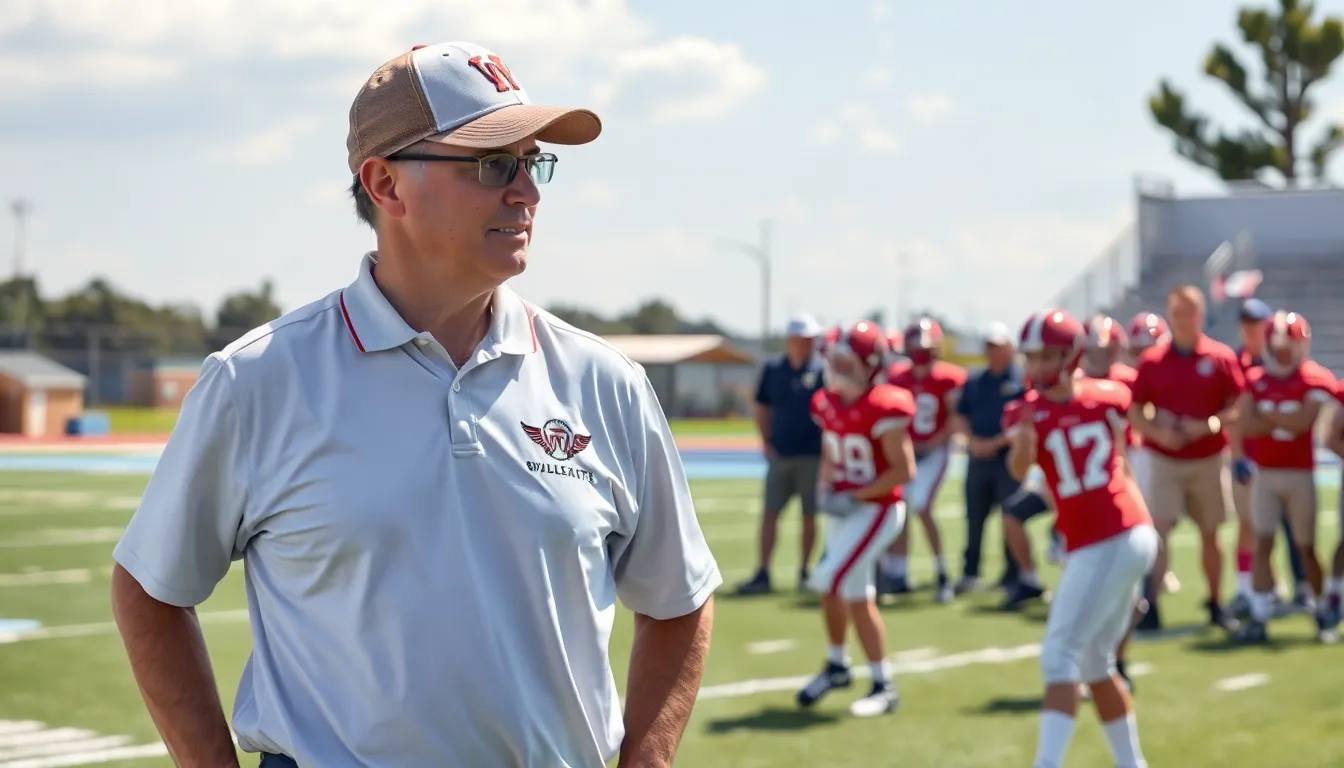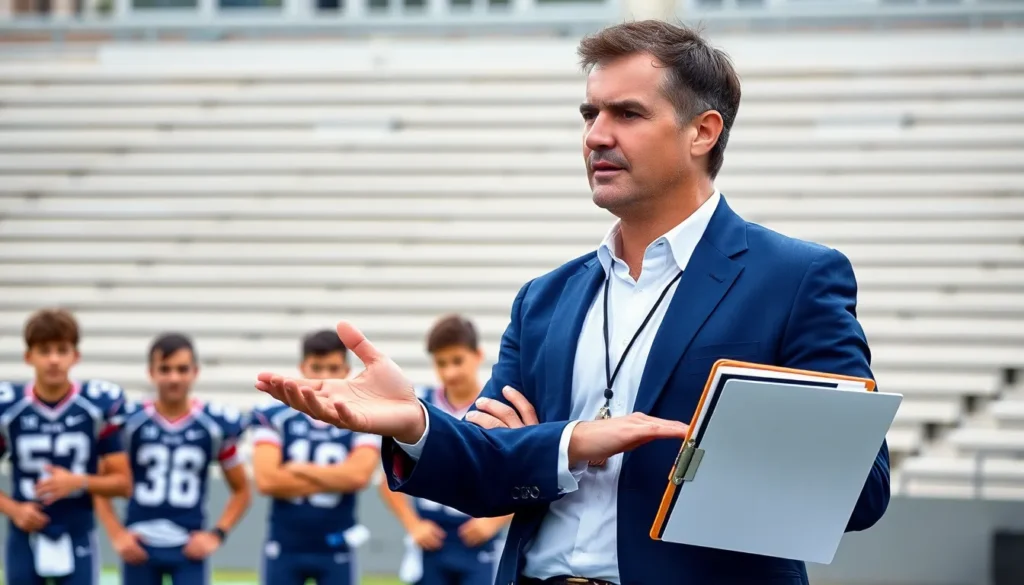Table of Contents
ToggleIn the high-octane world of college football, the general manager is the unsung hero—think of them as the wizard behind the curtain, pulling the strings while the players steal the spotlight. They juggle recruiting, budgets, and strategy like a circus performer on a unicycle, all while trying to keep the fans from storming the field. It’s a job that requires not just a keen eye for talent but also a knack for navigating the wild world of college athletics.
Role of a College Football General Manager
The college football general manager serves as the pivotal figure in a football program. This position encompasses various duties that impact both team performance and overall athletic department success.
Overview of Responsibilities
The general manager oversees the recruitment process, ensuring that talented players align with the program’s goals. Budgeting falls under their purview, where they manage financial resources effectively. Strategic planning represents another critical responsibility; aligning daily operations with long-term objectives is essential. They also coordinate with coaches and staff to enhance team dynamics. Engaging with fans and communities is crucial, as building positive relationships helps foster strong support.
Key Skills and Qualifications
Strong leadership abilities define effective general managers. They possess excellent communication skills for engaging with diverse stakeholders. A deep understanding of college athletics regulations ensures compliance and strategic decision-making. Analytical skills play a vital role, enabling comprehensive evaluations of talent and performance metrics. Additionally, experience in program management contributes to effective budget oversight and resource allocation, fostering team success.
The Recruitment Process

The recruitment process in college football is vital for program success. General managers focus on finding and evaluating potential players to strengthen the team.
Scouting Talent
Scouting talent requires thorough observation and analysis. Evaluators assess athletes during games, practices, and camps. They analyze performance metrics, physical attributes, and mental toughness. Coaches provide insights on player capabilities, which aids in making informed decisions. Metrics like completions, tackles, and touchdowns illustrate a player’s impact on success. Continuous monitoring of high school prospects forms a pipeline for future recruitment. Engaging with recruiting services and databases helps identify emerging talent. A collaborative approach between scouts and coaches ensures alignment with team needs and goals.
Building Relationships with Coaches
Building relationships with coaches forms a crucial component of recruitment. Trust and communication enhance synergy in talent evaluation. Regular discussions about player strengths and weaknesses offer valuable insights. Coaches highlight the specific skills needed for different positions. Establishing mutual respect fosters collaboration in identifying potential recruits. Meetings and phone calls keep lines of communication open. Attendance at coaching clinics strengthens these connections. A strong network of coaches can lead to recommendations, further enriching the recruitment process. Aligning on team strategies supports effective recruitment efforts, ensuring the program attracts the right talent.
Salary and Career Outlook
The salary and career outlook for college football general managers show promising potential. These professionals typically receive competitive compensation that reflects their responsibilities in managing programs.
Average Compensation
Average compensation for college football general managers varies significantly. On average, they earn between $80,000 and $150,000 annually, depending on the institution’s size and program success. Top-tier programs may offer salaries exceeding $200,000, especially in Power Five conferences. Benefits such as performance bonuses and incentives often accompany these positions, enhancing overall earnings.
Growth Opportunities in the Field
Growth opportunities for college football general managers reflect the evolving landscape of college athletics. Many begin their careers in entry-level positions, such as recruitment analysts or assistants. Advancement often comes through networking, skill development, and demonstrated success in managing programs. Transitioning into higher-level roles, like athletic directors, occurs for those who excel in strategic planning and talent management. The demand for skilled general managers continues as college football expands and showcases increased financial investments in athletic programs.
Challenges Faced by General Managers
General managers in college football encounter various challenges that impact their effectiveness and the program’s success.
Navigating Compliance Issues
Compliance with NCAA regulations presents a major hurdle for general managers. Understanding the complex rules surrounding recruitment, scholarships, and player eligibility is essential. Each violation can lead to severe penalties, including lost scholarships and postseason bans. General managers must stay updated on changes to legislation and compliance measures. Moreover, they routinely collaborate with compliance officers to ensure adherence to these guidelines, fostering a culture of integrity within the program.
Managing Team Dynamics
Team dynamics play a critical role in a college football program’s success. Managing relationships among players, coaches, and staff requires strong interpersonal skills. Conflicts can arise due to competition for playing time or differences in player personalities. To address these issues, general managers often implement team-building activities and maintain open communication channels. Fostering an inclusive environment can enhance collaboration and performance on the field. Ultimately, they strive to create a culture of unity that supports both individual growth and team achievement.
The role of a college football general manager is integral to the success of a program. They navigate a complex landscape of recruiting budgeting and compliance while fostering relationships that enhance team dynamics. As college football continues to evolve the demand for skilled general managers will only increase. Their ability to assess talent manage resources and engage with fans positions them as key figures in shaping the future of college athletics. With competitive salaries and growth opportunities available those aspiring to this role can look forward to a rewarding career in a dynamic environment.







